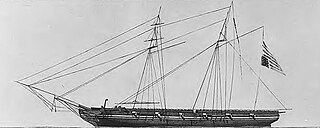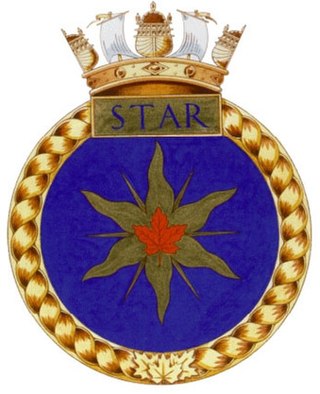This article has multiple issues. Please help improve it or discuss these issues on the talk page . (Learn how and when to remove these template messages)
|
A shipmate is a mate on one's own ship (i.e., a member of the same ship).
This article has multiple issues. Please help improve it or discuss these issues on the talk page . (Learn how and when to remove these template messages)
|
A shipmate is a mate on one's own ship (i.e., a member of the same ship).
In the navies of English-speaking nations (and the United States Coast Guard), the term "shipmate" is used among sailors as a generic moniker. It is used in the third person by a member of a ship's crew to describe another member, or in the second person when referring to any other Naval service member.
In the United States Navy, "shipmate" is a term used by anyone in the Navy to reference anyone else in the Navy. It can be used with a range of connotations—most often as an expression of camaraderie, but also as a respectful way to address other crew members whose rank or naval rating is not clear. It can also be used in a derogatory manner. It is used both on land and at sea and is used among Naval service members whether or not they are members of the same ship. The term is used so abundantly in the U.S. Navy that the inflection, context, and tone of the speaker can connote more meaning than the term itself.
In the U.S. Navy, recruits were indoctrinated with heavy use of the term upon beginning training at Recruit Training Command (or "boot camp"), where they used the term abundantly to refer to their peers in all but the least formal settings, in scenarios when referencing another person by name or title would be otherwise unnecessary. For example, a recruit in the chow line would add "shipmate" after identifying each item of food he or she wishes fellow recruits to place on his or her tray ("potatoes, Shipmate!", "green beans, Shipmate!", "bread, Shipmate!" etc.) The term was almost never used by superiors to refer to inferiors during recruit training, except ironically or in a derogatory tone. As the hierarchical distinctions in recruit training fade once the recruit joins the regular Navy, so do the above distinctions. It is not uncommon to hear an Admiral or Captain refer to his lowest subordinates as "shipmate" in order to express camaraderie. Inversely, peers may refer to one another as "shipwreck" or use a vocal inflection that connotes derogation, usually with an accent on the "-mate."
The term is often used in a follow-on training status such as "A" School from superiors to their subordinates to point out deficiencies, usually when rank of the subordinate is not easily identified. An example would be "Hey shipmate! Fix your uniform!" The use of the term in this context would be similar to a division commander referring to a recruit as "Recruit".
Although the term is not commonly used outside maritime scenarios, it is often used by Navy veterans toward one another as a means to reminisce or bond about shared experience.
Herman Melville's Moby-Dick, a popular maritime novel, is laced with the term, although the narrator Ishmael seldom uses the word: "This man interested me at once; and since the sea-gods had ordained that he should soon become my shipmate (though but a sleeping partner one, so far as this narrative is concerned), I will here venture upon a little description of him."
One might refer to a fellow crew member by saying, "He and I were shipmates before reporting for duty here in Norfolk." The word is used in this sense in the old song "Don't Forget Your Old Shipmates".
When getting the attention of a fellow sailor, one might simply call out "Shipmate!" or "Hey, shipmate!"
When speaking to a group or crowd of sailors, i.e. "My fellow shipmates..."

The Royal Canadian Navy is the naval force of Canada. The navy is one of three environmental commands within the Canadian Armed Forces. As of February 2024, the RCN operates 12 Halifax-class frigates, 12 Kingston-class coastal defence vessels, 4 Victoria-class submarines, 2 Harry DeWolf-class offshore patrol vessels, 8 Orca-class patrol vessels, and several auxiliary vessels. The RCN consists of 8,400 Regular Force and 4,100 Primary Reserve sailors, supported by 3,800 civilians. Vice-Admiral Angus Topshee is the commander of the Royal Canadian Navy and chief of the Naval Staff.

USS Grampus was a schooner in the United States Navy. She was the first U.S. Navy ship to be named for the Grampus griseus, also known as Risso's dolphin.

Impressment, colloquially "the press" or the "press gang", is the forced conscription of men into a military force, especially a naval force, via intimidation and physical coercion, conducted by an organized group. European navies of several nations used forced recruitment by various means. The large size of the British Royal Navy in the Age of Sail meant impressment was most commonly associated with Great Britain and Ireland. It was used by the Royal Navy in wartime, beginning in 1664 and during the 18th and early 19th centuries as a means of crewing warships, although legal sanction for the practice can be traced back to the time of Edward I of England. The Royal Navy impressed many merchant sailors, as well as some sailors from other, mostly European, nations. People liable to impressment were "eligible men of seafaring habits between the ages of 18 and 55 years". Non-seamen were sometimes impressed as well, though rarely. In addition to the Royal Navy's use of impressment, the British Army also experimented with impressment from 1778 to 1780.
A plankowner is an individual who was a member of the crew of a United States Navy ship or United States Coast Guard Cutter, or a Royal Canadian Navy ship, when that ship was placed in commission. Originally, this term applied only to crew members that were present at the ship's first commissioning. Today, however, plankowner is often applied to members of newly commissioned units, new military bases and recommissioning crews as well.

The Altmark incident was a naval incident of World War II between British destroyers and the German tanker Altmark, which happened on 16–17 February 1940. It took place in what were neutral Norwegian waters. On board the Altmark were roughly 300 Allied prisoners, whose ships had been sunk by the pocket battleship Graf Spee in the Southern Atlantic Ocean.

White-Jacket; or, The World in a Man-of-War is the fifth book by American writer Herman Melville, first published in London in 1850. The book is based on the author's fourteen months' service in the United States Navy, aboard the frigate USS Neversink.
The Sailor's Creed is a code of ethics of the United States Navy, originally developed for the promotion of personal excellence.
Landsman or landman was a military rank given to naval recruits.
Ordinary seaman is a military rank used in naval forces.

There are many customs and traditions associated with the Royal Navy of the United Kingdom. Many of these traditions have carried on to other Commonwealth navies, such as Canada, India, Australia and New Zealand. These include formal customs such as separate crests associated with ships, ensigns and fleet reviews. There are also several less formal customs and traditions, including Naval slang commonly referred to as Jack Speak and the traditional games of Uckers and Euchre.
Tai Pī is a province of Nuku Hiva, in the Marquesas Islands, an administrative subdivision of French Polynesia. The settlement follows the line of the valley and the stream that passes from its mountainous island surroundings.

HMCS Star is a Canadian Forces Naval Reserve Division (NRD) located in Hamilton, Ontario. Dubbed a stone frigate, HMCS Star is a land-based naval establishment for training part-time sailors as well as functioning as a local recruitment centre for the Royal Canadian Navy (RCN). The second oldest of 24 naval reserve divisions located in major cities across Canada, Star was stood up on 15 March 1923 as the Royal Canadian Naval Volunteer Reserve (RCNVR) Hamilton Half Company and then on 1 November 1941 as HMCS Star.

Sailor tattoos are traditions of tattooing among sailors, including images with symbolic meanings. These practices date back to at least the 16th century among European sailors, and since colonial times among American sailors. People participating in these traditions have included military service members in national navies, seafarers in whaling and fishing fleets, and civilian mariners on merchant ships and research vessels. Sailor tattoos have served as protective talismans in sailors' superstitions, records of important experiences, markers of identity, and means of self-expression.

A sailor, seaman, mariner, or seafarer is a person who works aboard a watercraft as part of its crew, and may work in any one of a number of different fields that are related to the operation and maintenance of a ship.

Shipmates Forever is a 1935 American musical film directed by Frank Borzage and written by Delmer Daves. Set at the United States Naval Academy, the film stars Dick Powell, Ruby Keeler, Lewis Stone, Ross Alexander, John Arledge, Eddie Acuff, and Dick Foran. The film was released by Warner Bros. on October 12, 1935.
LST-172 was an American World War II Landing Ship, Tank.
This glossary of nautical terms is an alphabetical listing of terms and expressions connected with ships, shipping, seamanship and navigation on water. Some remain current, while many date from the 17th to 19th centuries. The word nautical derives from the Latin nauticus, from Greek nautikos, from nautēs: "sailor", from naus: "ship".
Nautical operations refers to the crew operation of a ship. It is the term used in academic education to refer to the studies of this professional field. Nautical operations refers to all the operational procedures, specific roles of officers and crew members, and regular functions and technical processes, which together shape the structure and functions for the general operations of a ship.